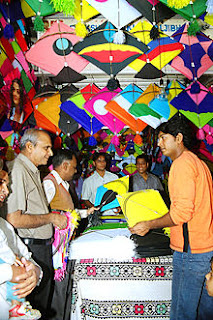Muhammad Yusuf Khan [Dilip Kumar]

Muhammad Yusuf Khan [Dilip Kumar]
Born Muhammad Yusuf Khan [Dilip Kumar]
December 11, 1922 birth place at Mohallah Khudadad, Peshawar, Pakistan
Peshawar, Indian Union, now Pakistan
Residence Mumbai, Maharashtra, India
Other names Dilip Sahaab
Occupation Actor, Producer, Director, Politician
Years active 1944 - 1998 (retired)
Religion Islam (Muslim)
Spouse Saira Banu 1966
Early Life
Dilip Kumar birth place at Mohallah Khudadad, Peshawar, Pakistan
Dilip Kumar was born Muhammad Yusuf Khan at Mohallah Khudadad, in Qissa Khwani Bazaar in Peshawar, British India (now Pakistan since 14 August, 1947). He was born to a Hindko-speaking Peshawari family with twelve children. His father, Lala Ghulam Sarwar, was a fruit merchant who owned large orchards in Peshawar and Deolali in Maharashtra near Nashik. The family relocated to Mumbai in the 1930s and in the early 1940s Yusuf Khan moved to Pune and started a canteen business and supplying dried fruits.
In 1943, actress Devika Rani, who was also the wife of the founder of the Bombay Talkies film studio, Himanshu Rai, helped Khan's entry into the Bollywood film industry. Hindi Author Bhagwati Charan Varma gave him the screen name Dilip Kumar and gave him the leading role in his film Jwar Bhata (1944). Devika Rani and her husband Svetoslav Roerich spotted Khan in one of Pune's Aundh military canteens.
Career
His first film with Nisar Bhai and Hamed Bhai Jwar Bhata was released in 1944 which went unnoticed. His first major hit was the 1947 film Jugnu. He appeared in many hits thereafter including the romantic melodrama Andaz, Deedar (1951), Amar (1954), Devdas (1955) and Madhumati (1958). These films established his screen image as the "Tragedy King".
He also played lighthearted roles in films such as Aan (1952), Azaad (1955) and Musafir (1957). In 1960 he portrayed Prince Salim in the historical film Mughal-e-Azam which as of 2008 was the second highest grossing film in Hindi film history.
In 1961 he produced and starred in Ganga Jamuna in which he and his real-life brother Nasir Khan played the title roles. This was the only film he produced. In 1962 British director David Lean offered him the role of Sherif Ali in his 1962 film Lawrence of Arabia, but Kumar declined the part. The role eventually went to Omar Sharif, the Egyptian actor. In 1967 played a dual role of twins separated at birth in the hit film Ram Aur Shyam and in the 1976 film Bairaag he played triple roles as a father and his twin sons. He took a five year hiatus from films from 1976 to 1981.
In 1981 he returned to film with the multi-starrer Kranti. He went onto play character roles in films including Shakti (1982), Vidhaata (1982), Mashaal (1984) and Karma (1986). In 1991 he starred alongside veteran actor Raaj Kumar in Saudagar which was his last successful film. In 1993 he won the Filmfare Lifetime Achievement Award. In 1996 he was attached to make his directorial debut with a film titled Kalinga but the film was shelved. In 1998 he made his last film appearance in the unsuccessful film Qila where once again he played dual roles as an evil landowner and his twin brother investigating his death. His films Mughal-E-Azam and Naya Daur were fully colorized and re-released in 2004 and 2008 respectively.
Public Life
Kumar has been active in efforts to bring the people of India and Pakistan closer together. He has been a member of the upper house of Parliament since 2000.
He was awarded the Dadasaheb Phalke Award in 1994. In 1998 he was awarded the Nishan-e-Pakistan, the highest civilian award conferred by the government of Pakistan. He is the second Indian to receive the award. At the time of the Kargil War, Shiv Sena chief Bal Thackeray demanded Kumar return his Nishan-e-Pakistan, arguing that "He must return Nishan-e-Imtiaz following that country's blatant aggression on Indian soil.". Kumar refused, saying:
"This award was given to me for the humane activities to which I have dedicated myself. I have worked for the poor, I have worked for many years to bridge the cultural and communal gaps between India and Pakistan. Politics and religion have created these boundaries. I have striven to bring the two people together in whatever way I could. Tell me, what does any of this have to do with the Kargil conflict?
Personal Life
Kumar married actress and beauty queen Saira Banu in year 1966 when he was aged 44 and she was 22. His brothers are Nasir Khan, Ehsan Khan and Aslam Khan. Kumar's younger brother Nasir Khan was also an actor and appeared opposite him in Ganga Jamuna (1961) and Bairaag (1976). In the early 1980s the news of Dilip's second marriage to a woman named Asma was broken to much hue and cry. It was revealed that Dilip and Asma had been married for three years and that Asma had been kept with Dilip's sister during the whole time. The scandal caused much damage to Dilip's image of a gentleman. For reasons concerned with his image and also Asma's continued links with her first husband Dilip divorced her sometime in the mid 80s.
Awards
Kumar has received many awards throughout his career, including 8 Filmfare Award for Best Actor awards and 19 nominations. He was honoured with the Filmfare Lifetime Achievement Award in 1993. The Government of India honoured him with the Dadasaheb Phalke Award in 1994 - the highest award for cinematic excellence in India. In 1980, he was appointed Sheriff of Mumbai, an honorary position. In 1991, he was awarded Padma Bhushan from the Government of India. In 1997, Kumar was awarded, Nishan-e-Imtiaz, Pakistan's highest civilian award.
He received in 1997 the NTR National Award. He was also awarded CNN-IBN Indian of the Year - Lifetime Achievement Award in 2009.




Comments
Post a Comment